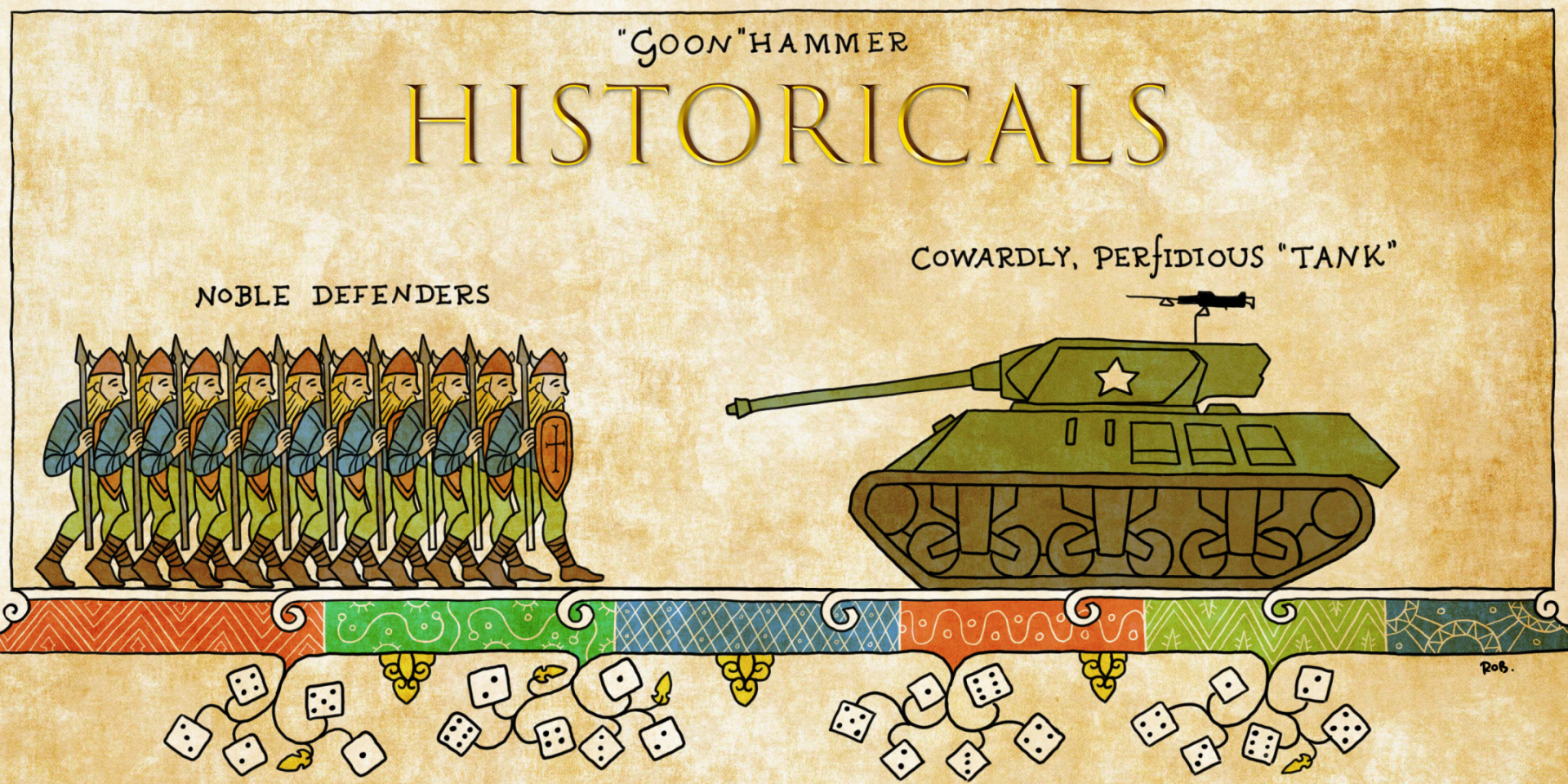If you’re looking for some inspiration for getting into the Civil War and building your forces or starting a campaign with friends, we’ve got a few recommendations to check out.
I realised, being the filthy Brit that I am, that in my introduction to the setting last week I probably didn’t do a good job explaining exactly why you should be thinking about the English Civil War for your next historicals jaunt. I had to sweat through exams on the ECW, got taken on innumerable family trips to another rolling green field with two trees on the side said to be a battle site etc etc so just kind of went with it. So here’s the pitch:
The English Civil War is your history too. If you’re part of the English speaking world, this is the point when the rising tide of the merchant class started exporting the weird religious extremists that kicked the whole colonialist thing off. If you’re not, this is the exact point when England started to transition from fringe nation off the coast of France towards world-spanning psychopaths unleashing the redcoats and a vast amount of money on everyone they came across. Crucially, it’s before all that really started, so it’s more or less morally OK to play the Brits.
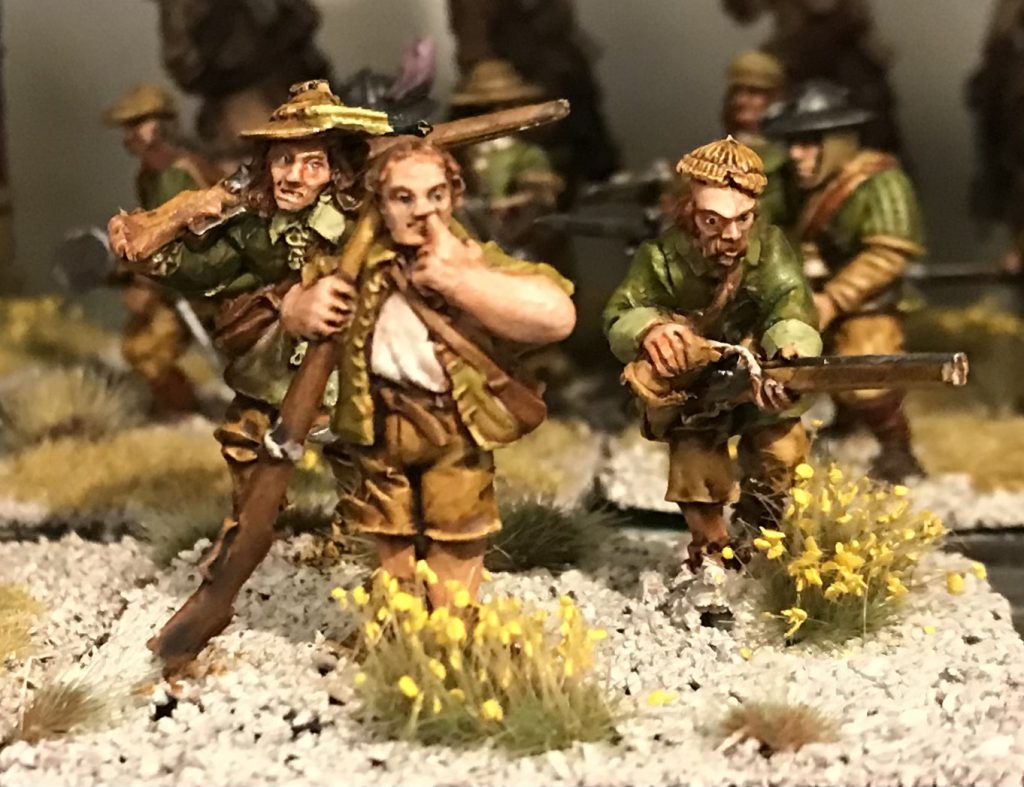
Anyway, if you’d like to know more from reputable actual sources rather than “some guy” here’s my recommendations.
Books
The English Civil War: A People’s History, Diane Purkiss
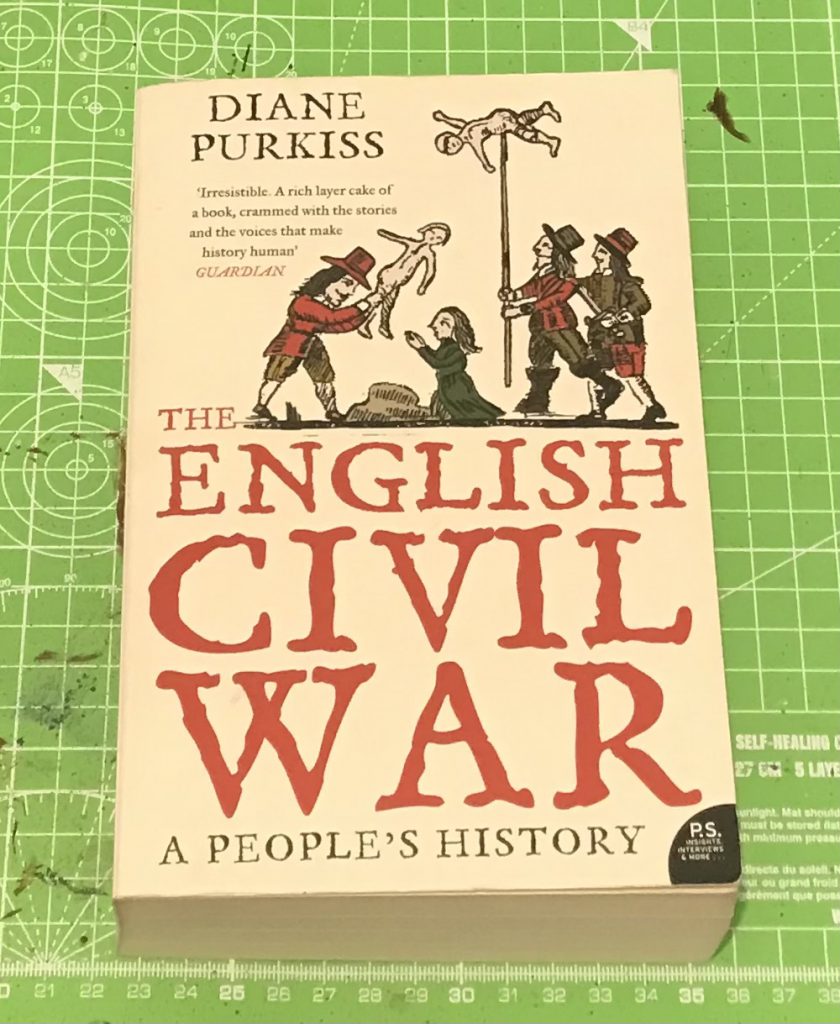
It’s far, far, far too easy in historical wargaming, and hell – military history altogether, to end up talking about specific battles, tactics and strategy without looking at the social context and the key roles played by those who weren’t soldiers. Even more so in a civil war, it’s just bad history. Picking this up not only gives you that context, but what’s also easily the best, clearest and most interesting general history of the English Civil War proper. Drawn extensively from diaries, letters and other personal accounts, Purkiss really gets into what it actually felt like to be drawn up into this terrible all-encompassing conflict. A lot of the English Civil War was fought on a terribly local scale – perhaps you’re besieging the castle down the road, garrisoned by people from your extended family and led by the squire’s wife while he’s off in the City. It’s these mini histories, these thousands of incredibly local flashpoints that show how bitter and acrimonious it all became – a “war without an enemy” but also a war without a front, perfect for skirmish campaigns. In addition to all the personal experience, it’s got politics, battles, muskets, personalities, women and children, sieges, trade, riots – the whole lot really. As both an introduction and as a deep dive into what people were actually thinking and feeling beyond the butt of a pike, you will not find better.
God’s Executioner: Oliver Cromwell and the conquest of Ireland, Micheál Ó Siochrú
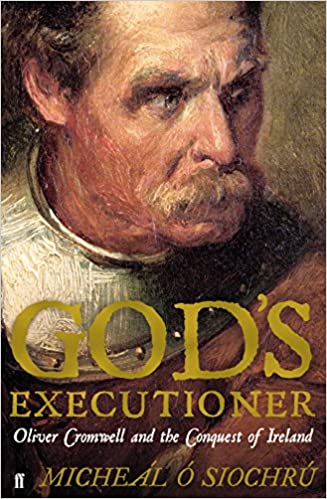
Ever since his body was dug up and dismembered by the vengeful son of the executed King, there’s been a certain amount of Cromwell-worship (if not outright fellatio) from English historians. 99 out of a 100 books on the ECW are guilty of this to some degree, so my recommendation is the rebuttal: Cromwell was a goddamn monster.
Cromwell in Ireland is one of those issues where depending on what side of a border line you’re on he’s either a massive war criminal or the world’s greatest hero. Ó Siochrú lays out flat and dispassionate why he was certainly much much closer to the former while giving a great overview of the political, religious and military situation in Ireland during the Wars of Three Kingdoms. It is a sobering and carefully considered book that shows how the potent mix of easy military victory, religious hysteria and racism led to massacres and ethnic cleansing. It’s a sadly contemporary story, and, despite the chud reviews you’ll find in no way steps into bias, sticking firmly and deliberately to the presentation of events that sadly stand on their own evidence.
The World Turned Upside Down, Christopher Hill
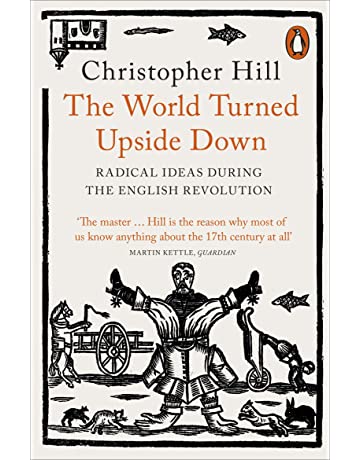
I promise I will recommend something more battle focused, but as a survey of how goddamn amazingly weird the ECW turned British politics, you really must read this one. The World Turned Upside Down is Hill’s “history from the bottom up” of what radicals were thinking and doing during this part of the 17th century. This is a time when proto-communist Levellers and agrarian Anarchist Diggers came surprisingly close to writing the first constitution of Britain, and when occasional free love movements shocked the world with public nudity and sex, and even the origins of the Quakers as the powerful social and political force they still (surprisingly) are today. Hill covers all of this in the classic Marxist Historian style, with a fair bit of wistful longing for the world that could have been. It was a massive and powerful influence on every popular history (not just ECW history) that came after.
I mean, honestly if that isn’t enough to pick it up I don’t know what would be.
Naseby 1645, Martin Marix Evans
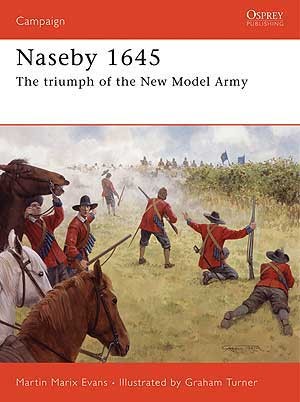
Ok as a massive grognard I had to get one Osprey in there, and it’s this one. Naseby was the final, conclusive mass battle of the First English Civil War and the one where the new concept of “having a trained, standing army ideologically committed to the war” really paid off. At Naseby, the New Model Army smashed the Royalists, capturing all the artillery, an astonishing 500 officers and the King’s personal baggage and a shedload of incriminating letters. Naseby is one of those roiling, confusing, knock-down-drag-out multi-phase affairs where strategy, chance and the lay of the land make a lot of accounts confusing and difficult. Evans instead makes the progress of the battle nice and clear, using historical, archaeological and experiential (just going there) evidence. As usual for an Osprey, it’s also beautifully illustrated and generally very accessible. All in all, a fascinating and useful account of the day the war was finally won.
Films
There’s a surprising dearth of modern films about the English Civil War, I think largely because the 17th century British conceptual space is eaten up by creepy puritan horror.
The Devil’s Whore
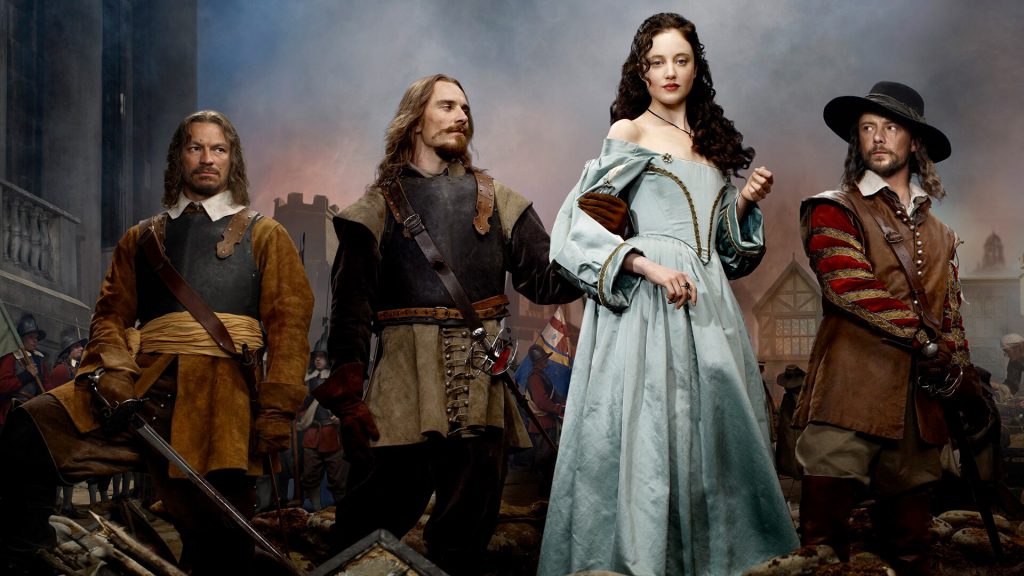
The Devil’s Whore (puritanically – ha ha – called the Devil’s Mistress in the US) was a British miniseries exploring the life and history of Angelica Fanshawe (fictional) and a load of political, military and religious figures (historical) during the ECW. Going from the start of the war to the establishment of the Republic and Commonwealth, it deals with both military and social revolution, and includes the always amazing John Simm and Michael Fassbender and Andrea Riseborough as the titular Mistress. It gets an absolute pasting as a “comic-strip version of the English Civil War” (nothing wrong with that in my mind), but it’s weirdly dreamy, ambitious, gritty and if you want to watch Fassbender as a political radical chew scenery and shoot Royalists, you have no other choice anyway.
A Field in England
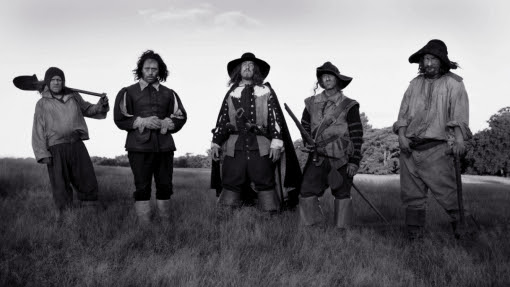
Absolutely a war movie, despite mostly being set in a single field, in black and white and featuring heavy hallucinogen consumption. A Field in England captures the weirdness of the English Civil War as a spiritual-religious vision quest involving deserters from an extremely nearby battle. It’s massively influential on a couple of wargaming trends going on at the moment in the quasi-historical scene that we’ll have a look at in this series soon – but anything where you add root vegetables, tentacles, elder god influences or the undead to 17th century historicals has a strong debt to Ben Wheatley and this beautifully weird, artistic thing here. If you’re idly reading about historicals thinking yeah but where’s the weird, where’s the fantasy element that gets me into Age of Sigmar or 40k, or whatever wargame you’re playing involving giant mechs or guys that can shoot lightning out of their arseholes, here you go – have fun.
And finally….
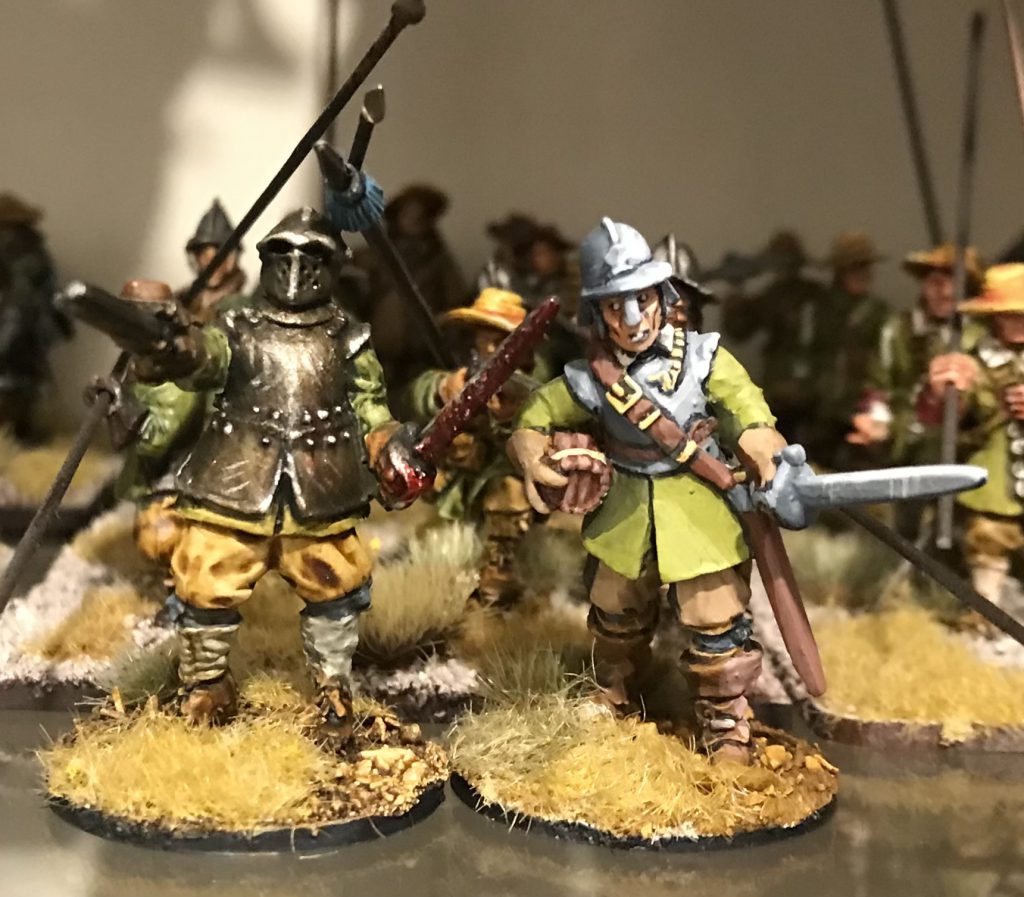
Where’s the video games? Well – aside from Europa Universalis and it’s ilk where you can certainly get an experience of the kinds of social change going on in the period, the ECW isn’t all that well represented in gaming. There’s Matrix Games English Civil War, and Hexwar’s Fire and Fury, and they’re both ok, but nothing that I know of in the vein of Ultimate General or Mount and Blade. As a result, I have nothing to recommend – but please accept my Wind Waker inspired paintjob for one of my Bloody Miniatures storming Party.
See you next time for 1,645 ways to paint the same three uniform colours!
Have any questions or feedback? Drop us a note in the comments below or email us at contact@goonhammer.com.
